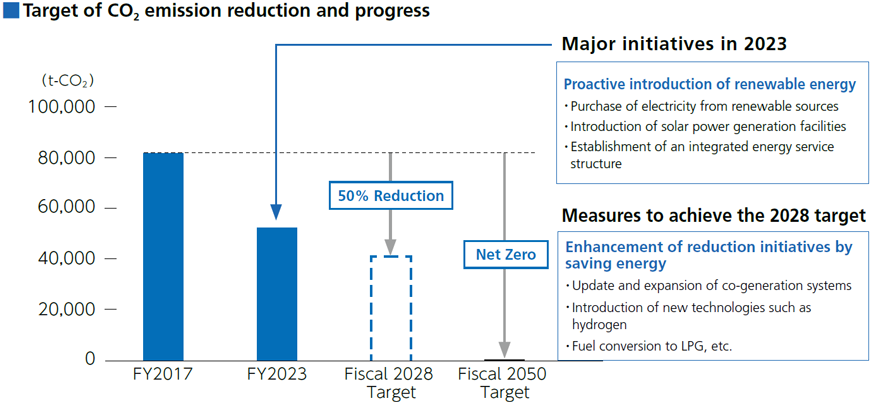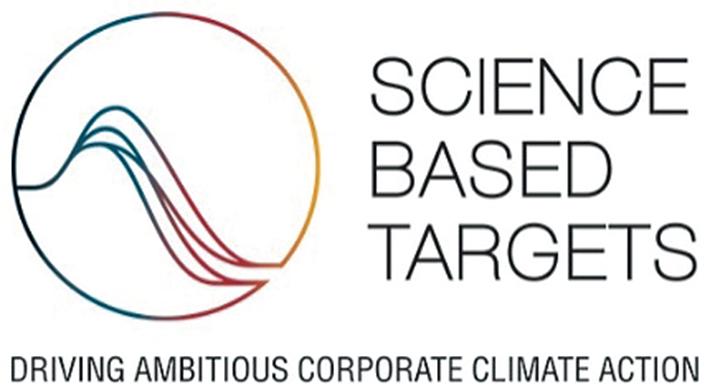Approach and Policy
Climate change due to global warming is causing serious environmental issues on a worldwide scale, such as by severely impacting biological and water resources. We recognize it as a major risk to our global operations. In aiming to contribute to a decarbonized, more sustainable society, the Otsuka group is working to reduce greenhouse gas (GHG) emissions throughout the value chain in line with the international targets and indicators adopted under the Paris Agreement.
Our Goals

- *1Including improvement in CO2 emissions by adopting IEA Emissions Factors
- *2Including the Green Power Certificates for offices

> Please refer to the Environmental Report (Carbon Neutrality)
Validation of Otsuka Pharmaceutical and Taiho Pharmaceutical Goals under the SBT Initiative1

GHG reduction goals set by Otsuka Pharmaceutical and Taiho Pharmaceutical have been validated under the Science Based Targets (SBT) Initiative.
In order to achieve these new goals, we will optimize energy use and introduce renewable energy, and continue to promote reduction of GHG emissions throughout the value chain.
2030 Goals
Reduction of greenhouse gas emissions (Scope 12 and 23) by 30% compared to 2017
Reduction of greenhouse gas emissions (Scope 34) by 20% compared to 2017
- 1:An international initiative led by the United Nations Global Compact (UNGC), World Resources Institute (WRI), and World Wide Fund for Nature (WWF). Validates companies' CO2 emission reduction targets that align with scientifically-based reduction scenarios, in order to achieve the Paris Agreement goal of holding the global average temperature increase below 2℃ above pre-industrial levels.
- 2:Scope 1: Direct emissions
- 3:Scope 2: Indirect emissions from energy sources
- 4:Scope 3: Other indirect emissions








